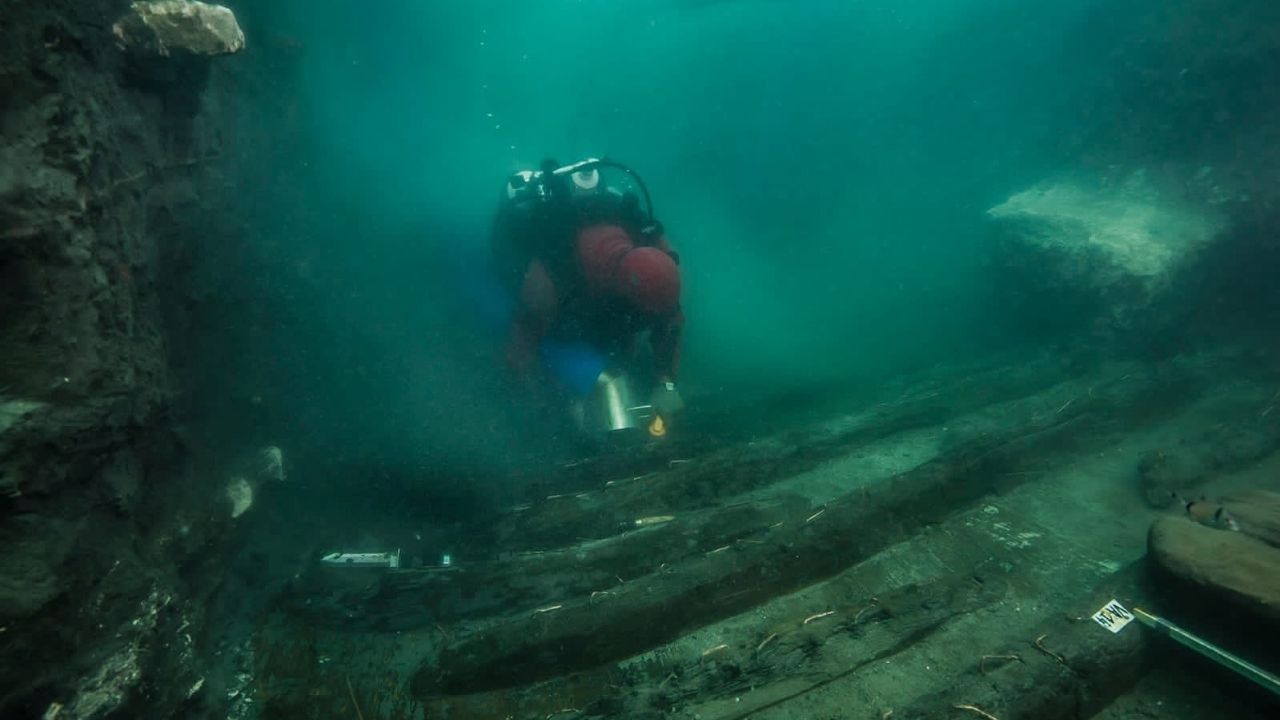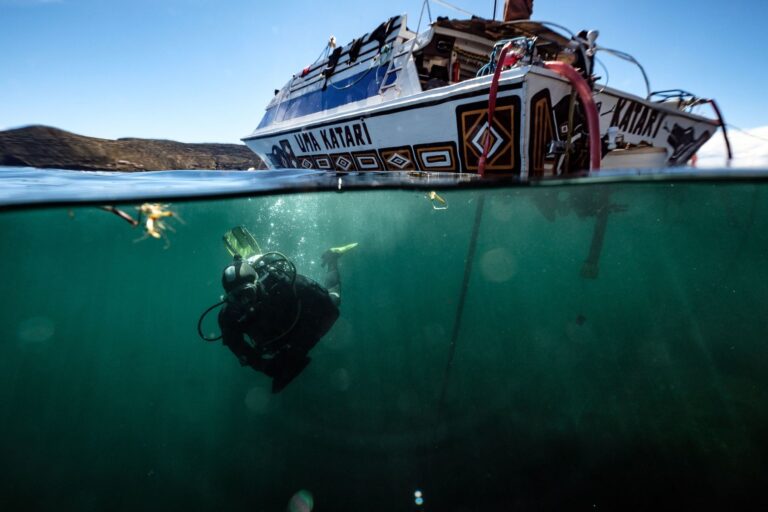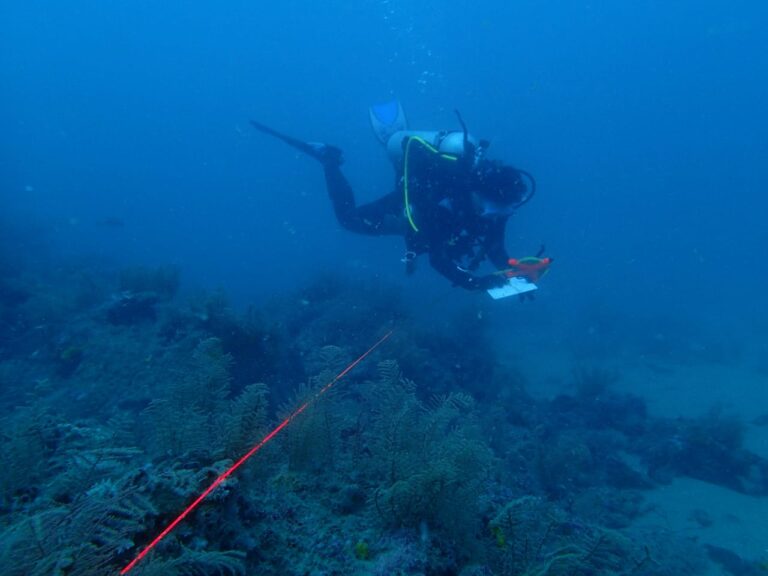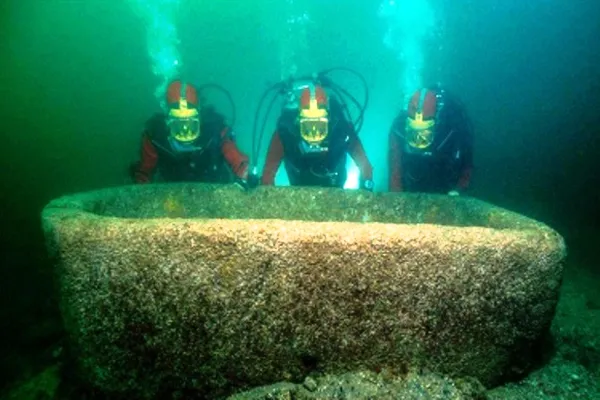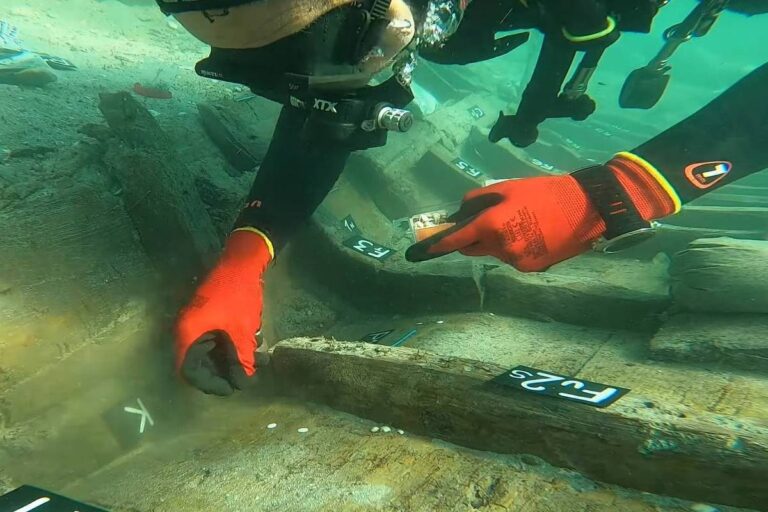Great Naval Battles: Traces of Maritime History
Naval battles have been central to the shaping of history, particularly in the realm of maritime affairs. These conflicts have had a profound impact on the fate of nations and the course of civilizations, often establishing or dismantling dominance in the seas. By exploring some of the greatest naval battles in history, we can gain a deeper understanding of their significance and lasting implications.
Naval battles hold immense importance as they have been instrumental in deciding the destiny of nations and the course of history itself. We cannot underestimate the role these conflicts have played in shaping the world as we know it today. From the ancient world to the modern era, naval battles have been a defining factor in determining the dominance of nations and the course of maritime history.
These battles have had a substantial influence on the state of maritime affairs, creating waves of change that reverberate throughout the ages. They have shaped the boundaries of maritime powers, established regional and global superiority, and even preserved civilizations. The impact of naval battles extends far beyond the seas, permeating the very fabric of societies and affecting political and economic dynamics worldwide.
The purpose of this article is to delve into some of the most significant naval battles in history and examine their profound impact. By examining the strategies, leadership, and outcomes of these battles, we can gain insights into their historical context and their broader relevance to modern maritime warfare. Join us as we embark on a journey through the annals of naval history and uncover the traces of maritime greatness left behind by these titanic battles.
Table of Contents
Battle of Salamis (480 BC)
The Battle of Salamis, fought in 480 BC, was a pivotal naval engagement between the Greek city-states and the mighty Persian Empire. This battle holds immense historical significance as it played a crucial role in preserving Greek independence and shaping the course of Western civilization.
In the background of the Battle of Salamis was the Persian invasion of Greece. Led by King Xerxes I, the Persian forces sought to expand their empire into Greece and conquer its city-states. The Greek city-states, united under the leadership of Athens and Sparta, stood as the last barrier against Persian dominance.
The naval battle between the Greek city-states and the Persian Empire took place in the narrow straits of Salamis, near Athens. The Greeks, led by the brilliant strategist Themistocles, deployed a smaller fleet but exploited their knowledge of the treacherous waters to their advantage. They used their superior maneuverability to outwit the larger Persian fleet.
The Greek victory in the Battle of Salamis was a defining moment in history. It halted the Persian advance into Greece, preserving Greek independence and preventing the dominance of Persian culture. This victory was not only a military triumph but also a cultural one. Greek civilization, with its emphasis on democracy, philosophy, and arts, flourished after the battle, influencing Western civilization for centuries to come. The Battle of Salamis stands as a testament to the power of a united front and the resilience of a determined people.
Battle of Trafalgar (1805)
The Battle of Trafalgar, fought in 1805, was a decisive naval battle between the British and the combined fleets of France and Spain during the Napoleonic Wars. This battle took place off the coast of southwestern Spain and had significant implications for the balance of power in Europe.
At the time, Britain and France were engaged in a long-standing rivalry, with each seeking to establish dominance over the other. The French Emperor Napoleon Bonaparte had been trying to mount an invasion of Britain, and the Battle of Trafalgar was seen as a crucial point in preventing this invasion.
Admiral Horatio Nelson, a renowned British naval commander, played a pivotal role in leading the British fleet to victory. His innovative tactics and strategies, including the famous “Nelson Touch,” allowed the British to effectively disrupt the enemy’s formation and secure a decisive victory.
The significance of the Battle of Trafalgar cannot be overstated. Not only did it establish British naval dominance, but it also prevented a French invasion of Britain. This victory ensured that Britain would remain a formidable force on the seas and solidified its position as a global superpower.
Moreover, the battle had a lasting impact on European geopolitics. It shattered French naval ambitions and severely weakened the combined French and Spanish fleets. This loss significantly diminished France’s ability to challenge British naval superiority and marked a turning point in the Napoleonic Wars.
In conclusion, the Battle of Trafalgar was a pivotal moment in naval history. Admiral Horatio Nelson’s leadership and tactics led to a decisive British victory, establishing British naval dominance and preventing a French invasion of Britain. This battle not only had immediate effects but also influenced the course of European history by reshaping the balance of power on the seas. The lessons learned from this historic battle continue to resonate today in the study and practice of maritime warfare.
Battle of Midway (1942)
Overview of the Pacific Theater during World War II
The Pacific Theater during World War II was a crucial battleground where significant naval battles took place. It was a major theater of operations involving the United States and Japan, with various island campaigns, air and naval engagements shaping the outcome of the war. One of the most pivotal battles in this theater was the Battle of Midway.
Description of the naval battle between the United States and Japan
The Battle of Midway, fought in June 1942, was a turning point in the war in the Pacific. The battle took place near the Midway Atoll, a strategic location between the United States and Japan. The Japanese aimed to seize the island and eliminate the United States as a naval threat, but their plans were intercepted by American code-breakers.
Importance of American code-breaking in predicting Japanese movements
American intelligence had broken the Japanese naval codes, giving them crucial insight into Japanese intentions and movements. This information allowed the United States to prepare and position their forces strategically. The knowledge of the Japanese plan and their target allowed the Americans to launch a surprise attack and gain a significant advantage in the battle.
Impact of the American victory in weakening the Japanese navy and shifting the balance of power towards the Allies
The American victory in the Battle of Midway had far-reaching consequences. It not only halted the Japanese advance in the Pacific but also weakened their naval strength significantly. The destruction of four Japanese aircraft carriers effectively reduced their offensive capabilities, while the United States suffered minimal losses. This victory shifted the balance of power in the Pacific towards the Allies, giving them a significant advantage in subsequent operations and contributing to Japan’s ultimate defeat.
In conclusion, the Battle of Midway was a pivotal moment in World War II’s Pacific Theater. The American code-breaking efforts, combined with their strategic positioning and tactical superiority, led to a decisive victory. This battle not only weakened the Japanese navy but also shifted the balance of power in favor of the Allies. The lessons learned from this battle continue to shape military strategies and underscore the importance of intelligence, preparedness, and decisive action in maritime warfare.
Battle of Jutland (1916)
The Battle of Jutland, fought in the North Sea during World War I, was a pivotal moment in the rivalry between the British and German navies. With tensions running high between the two maritime powers, the battle would have a lasting impact on the course of the war.
In the context of World War I, the British and German navies had been engaged in a naval arms race, each trying to outdo the other with new and powerful battleships. The Battle of Jutland was the climax of this rivalry, as the two fleets clashed in a fierce naval confrontation.
The battle itself was a complex affair, with both sides employing various strategic and tactical decisions. The British Grand Fleet, under the command of Admiral Sir John Jellicoe, sought to engage the German High Seas Fleet and cripple its naval power. Meanwhile, the German fleet, led by Vice-Admiral Reinhard Scheer, aimed to challenge British naval dominance and break the blockade imposed on Germany.
The legacy of the Battle of Jutland was significant. While the British suffered greater losses in terms of ships and men, the German High Seas Fleet’s retreat demonstrated the limitations of German naval power. The battle also highlighted the overall stalemate of World War I, with neither side emerging as a clear victor.
The Battle of Jutland had a profound impact on the subsequent course of the war. It exposed the vulnerabilities of both the British and German navies and emphasized the need for new strategies and technologies. Additionally, the battle solidified the British blockade of Germany, further isolating the German Empire.
In conclusion, the Battle of Jutland was a crucial naval engagement that shaped the outcomes of World War I. It underscored the rivalry between the British and German navies and highlighted the complexities and challenges of naval warfare. The legacy of the battle reverberated throughout the war, contributing to the overall stalemate and setting the stage for a new era in maritime history.
Conclusion
In conclusion, naval battles have played a crucial role in shaping maritime history and have had a lasting impact on geopolitical dynamics. Throughout history, these battles have determined the fate of nations and empires, preserving independence and influencing the course of Western civilization.
The Battle of Salamis in 480 BC stands as a shining example of how naval battles can change the course of history. The Greek victory in this battle not only preserved Greek independence but also had a profound influence on Western civilization. It showcased the power of naval forces and their ability to combat overwhelming odds.
Moving forward to the Napoleonic era, the Battle of Trafalgar in 1805 established British naval dominance and effectively prevented a French invasion of Britain. Admiral Horatio Nelson, with his exceptional leadership and strategic tactics, led the British fleet to a decisive victory. This battle showcased the importance of naval supremacy in maintaining national security and protecting trade routes.
World War II saw the Battle of Midway in 1942, which greatly weakened the Japanese navy and shifted the balance of power towards the Allies. The American victory in this battle was made possible by their intelligence advantage through code-breaking. It demonstrated the importance of technological advancements and intelligence in modern maritime warfare.
Furthermore, the Battle of Jutland in 1916 during World War I highlighted the strategic and tactical decisions made by both the British and German navies. Although it ended in a stalemate, with the German High Seas Fleet retreating, it further underscored the importance of naval power and its role in the broader conflict.
Studying these great naval battles is not only important for understanding the past, but also for gaining insights into modern maritime warfare. Lessons learned from these battles, such as the significance of leadership, tactics, intelligence, and technological advancements, continue to hold relevance in today’s naval strategies.
In conclusion, naval battles have left a profound impact on maritime history and the world as a whole. They have shaped geopolitical dynamics, preserved independence, and influenced the development of civilizations. The ongoing relevance of studying naval battles lies in the lessons they provide for modern maritime warfare, ensuring the readiness and preparedness of naval forces in an ever-changing world.

